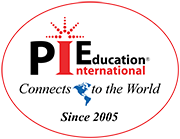Sheridan College - Davis
7899 McLaughlin Road, Brampton, Ontario, Canada
Program Summery
Program Description
- Statistics
- Designing of experiments
- Statistical quality control
- Management of total quality
- Quality planning
- ISO implementation and documentation
- Quality audits
- Reliability and product safety
- Product safety
- Measurements and testing
- Lean Six Sigma
- Supply chain management
- Implement and document national and international quality assurance standards such as ISO 9000 and TS 16949.
- Design and perform experiments to determine critical areas of product development and analyze the results and form conclusions for quality improvement.
- Use statistical process control techniques (SPC) recognized throughout industries to ensure the quality level of products.
- Lead or work with quality assurance professionals to assess, evaluate and improve quality planning procedures to ensure quality production using accepted quality assurance techniques, including Failure Mode and Effect Analyses (FMEA), Production Part Approval Process (PPAP), Advanced Product Quality Planning (APQP).
- Apply the principles and techniques of Total Quality Management in improving quality practices within an industrial or service organization.
- Be aware of and apply different auditing practises within an organization including internal, second and third party auditing.
- Apply principles and techniques of metrology (measurement), including Measurement System Analysis (MSA) to determine the accuracy of product components.
- Apply techniques of geometric dimensioning and tolerancing to ensure that product components conform to design requirements.
- Apply principles of modern logistic that involves the management of the movement, protection, and storage of product from supplier to customer.
- Select and develop appropriate instrumentation techniques to measure product and process performance.
- Apply principles and techniques of reliability engineering to predict product and system performance.
- Apply Lean Manufacturing tools and Six Sigma methodology to address the identification of waste from a process and to address problems process quality and consistency.
Academic Background
Minimum Level of Education Completed
2-Year Undergraduate Diploma
Minimum GPA
50%
Minimum Language Test Scores
TOEFL
88
IELTS
6.5
Reading
6
Writing
6
Listening
6
Speaking
6
PTE
60
Reading
57
Writing
57
Listening
57
Speaking
57
Duolingo
115
Literacy
95
Conversation
95
Comprehension
95
Production
95
Cost and Duration
Postgraduate Certificate
Program Level
1 year graduate certificate
Program Length
$20635 CAD
Cost of Living
$100 CAD
Application fee
$18442 CAD
Tution fee
Other Fees
Health and Dental Plan Fee: $395 per year
Student Union Fee: $348 per year
College-Wide Technology Fee: $250 per year
Athletic Activities Fee: $140 per year
Athletic Building Capital Fee: $70 per year
Program Intakes
September 2025
Open date
November 15, 2024
Submission deadline
May 22, 2025
January 2026
Open date
April 29, 2025
Submission deadline
October 31, 2025
May 2026
Open date
October 3, 2025
Submission deadline
January 21, 2026
Study Destinations
© 2005-2024 PIE Academy Inc.


